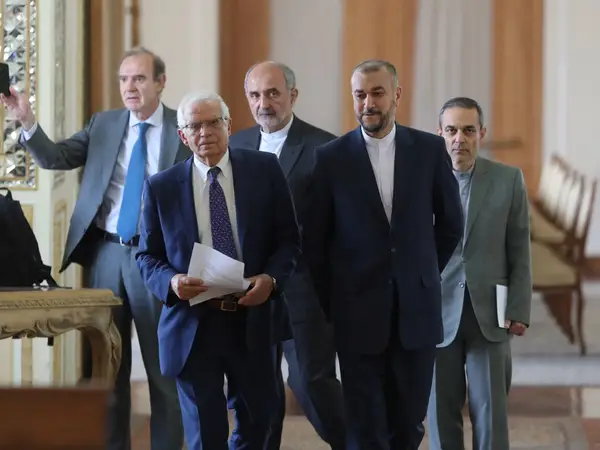Media in Tehran Thursday focused on news that the US has rejected Iran's three demands as spelled out in its response to an EU proposal in the nuclear talks.
The media quoted France 24 Tehran reporter Ali Montazeri, as saying that while Iran wanted to preserve the current status of its nuclear enrichment so that it would be able to return to the existing status in case Washington violates its obligations under the JCPOA, Washington has rejected it and has said that Iran should reverse its nuclear program and return to the status it had in March 2015.
Also, while Iran wanted to dismantle its new generation centrifuges but keep them in storage for a possible return to the current situation, the United States wants all those centrifuges destroyed.
Iran has also called for an end to the IAEA'a enquiry about the origin of uranium traces in three sites, but the United States has rejected that demand too and wants Tehran to give a convincing explanation to the IAEA.
These differences are fundamental and will inevitably lead to continuation of indirect talks between Tehran and Washington with Europe acting as mediator.
In recent days Iranian officials seemed upbeat about the prospects for a deal, but on Thursday a website close to the supreme national security council said that Iran is studying the US response according to its “red lines” and will respond in due course without any time deadlines.
But, Mohammad Marandi who often speaks for the negotiating team, spoke optimistically about the United States' response. He said Thursday morning, "It is a mistake to say that the United States has given its final reply to Iran about the agreement." Marandi said he cannot elaborate on this, but everyone will find out that he was right when the deal is done.
However, the editor of Hardline daily Kayhan, which operates under the aegis of the office of Supreme Leader Ali Khamenei, wrote in a commentary on Thursday, which even Tehrsn media assessed it as being utterly rude to the United States, that the JCPOA was a golden document for the US and a catastrophic agreement for Iran.
Kayhan's editor, the firebrand Hossein Shariatmadari, criticized the Iranian negotiators, telling them, "You are making an agreement while the sanctions have not been lifted, the IRGC is still under sanctions and uranium enrichment has been suspended. He simply ignored the fact that the sanctions on the IRGC are not part of the contents of the deal and the other matters are supposed to be done after an agreement is signed.
He also charged that an agreement with the United States will put Iran's nuclear sites under the scrutiny of the CIA and Mossad. Meanwhile, Shariatmadari suggested that a mysterious group has infiltrated the Iranian nuclear negotiation team and said that the infiltrators are taking advantage of Iran's emergency economic situation to undermine its national interests and security.
While Khamenei has been conspicuously silent about the negotiations and a possible agreement, it is not quite clear why his representative at the Kayhan is taking such a hard line about an agreement most Iranian politicians seem to support. It is likely that either he is too sure that Khamenei will shout at the negotiators sooner or later, as he has usually done, or simply tries to appease Khamenei by portraying himself as an ardent hardliner.
